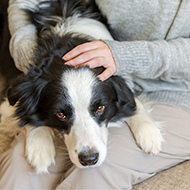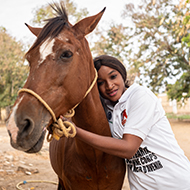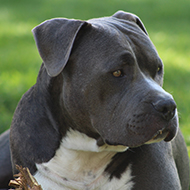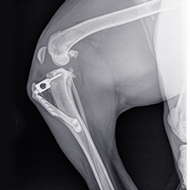More attention should be given to illegal pet imports, says new BVA president
Speaking at the recent BVA Members' Day in Cardiff, Defra secretary of state Owen Paterson spoke of the pet travel scheme (PETS), the role of vets in maintaining biosecurity and the importance of preparedness should a disease outbreak occur.
Since changes to PETS back in January 2012, concerns have been voiced from academics, veterinary and welfare organisations that pets may be entering the UK illegally, with fears that this could lead to a rise in disease incidence.
During his keynote speech at the BVA event, Mr Paterson commented on efforts to reduce the risk of disease, including the Government policy of checking 100 per cent of pets entering the UK from outside of the British Isles.
Whilst newly elected BVA president, Robin Hargreaves, says that the association "strongly supports" this policy, it is concerned by reports of pet passports not being checked.
Speaking to MRCVSonline after the event, Mr Hargreaves said: "Worryingly, our members have reported cases of owners claiming that their pet's passport was not checked."
As a result, Mr Hargreaves says that the association has taken its concerns to Defra, which has asked vets to provide the AHVLA with any information they may have about carriers failing to complete passport checks. The BVA has put further information about reporting information on its website.
Mr Hargreaves added: "We know that there has been an increase in pet traffic and so it is essential that these compliance checks continue to be carried out on all pet movements and that those carrying out the checks are aware of the potential for passports to be completed fraudulently."
However, he added that the pets that are declared are "unlikely to be the main biosecurity risk." More attention, he says "must be given to illegal imports where we have no idea what the scale of the problem might be. Again, we have raised these concerns with Defra and it is up to the Government to ensure that strong border controls are in place."
Mr Paterson said that Defra is making "every effort" to ensure that the UK remains rabies and Eccinococcus-free, whilst making it cheaper and easier for pet owners to travel abroad with their animals. Despite this, he says, "we will never remove the risk entirely" and vets must work with Government in order to ensure we are prepared should an outbreak occur.
According to Defra, six monthly meetings have been put in place with the Chief Veterinary Officer and his counterpart in Russia, to share knowledge and research in hopes of benefiting biosecurity. It is thought that they will meet again before Spring 2014.
During his speech, Mr Paterson says he believes that there is "a great deal that we can take on board from countries like Australia and New Zealand in terms of strict biosecurity and public awareness.
"At the airports there," he continued, "they have amnesty bins, scanners and trained sniffer dogs. All things we can learn from in the UK."
As a result of the changes to PETS, which came into force last year, cats, dogs and ferrets may enter the UK without a blood test from "listed" European countries, assuming they are microchipped and vaccinated against rabies. In addition, animals from non-listed countries are only required to wait 21 days, rather than the previous six months, to enter the UK. Mandatory tick treatment of all pets was also scrapped.
To find out more about reporting non-compliant pet travel, visit the BVA's website.
http://www.bva.co.uk/activity_and_advice/3524.aspx






 Birmingham Dogs Home has issued an urgent winter appeal as it faces more challenges over the Christmas period.
Birmingham Dogs Home has issued an urgent winter appeal as it faces more challenges over the Christmas period.
